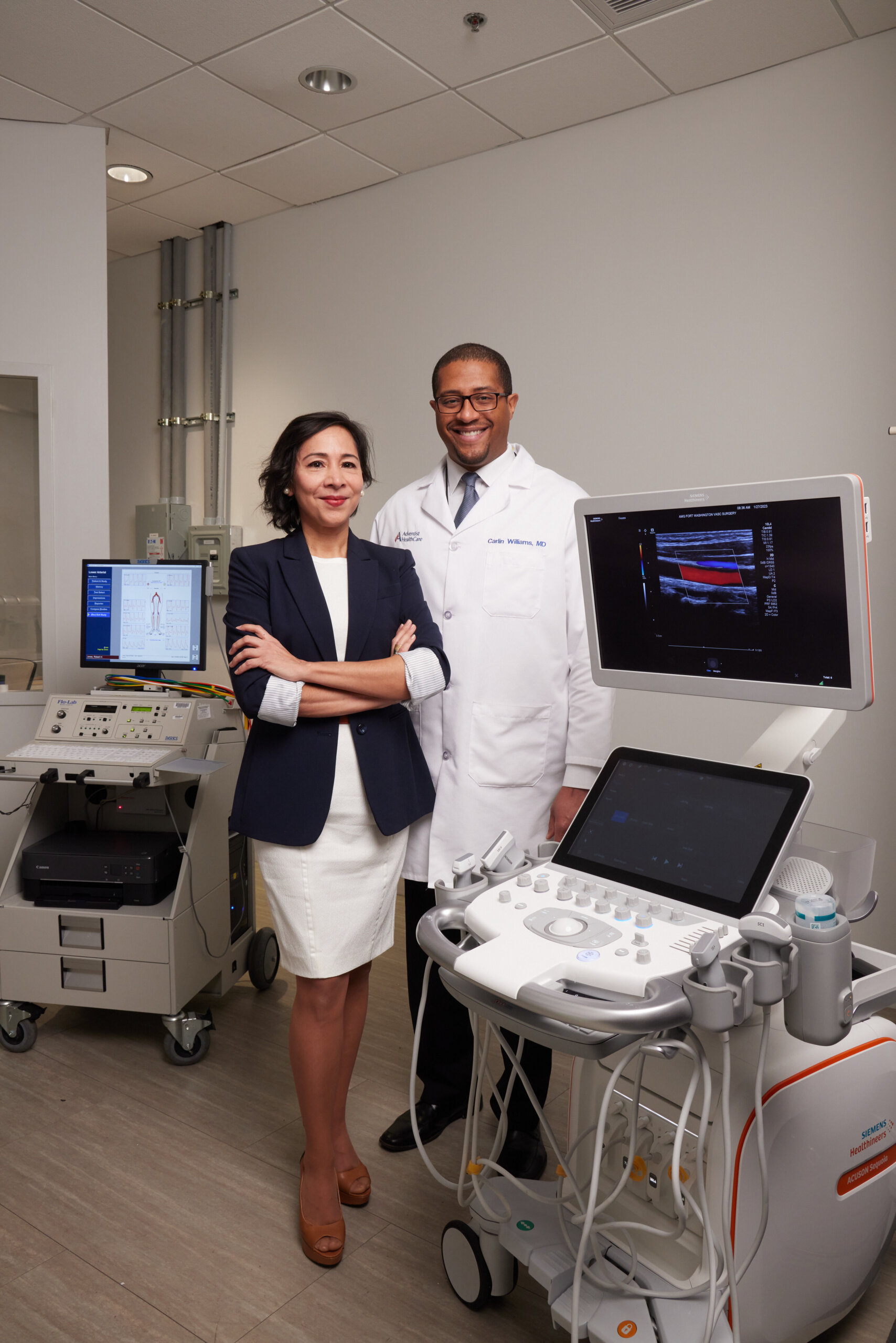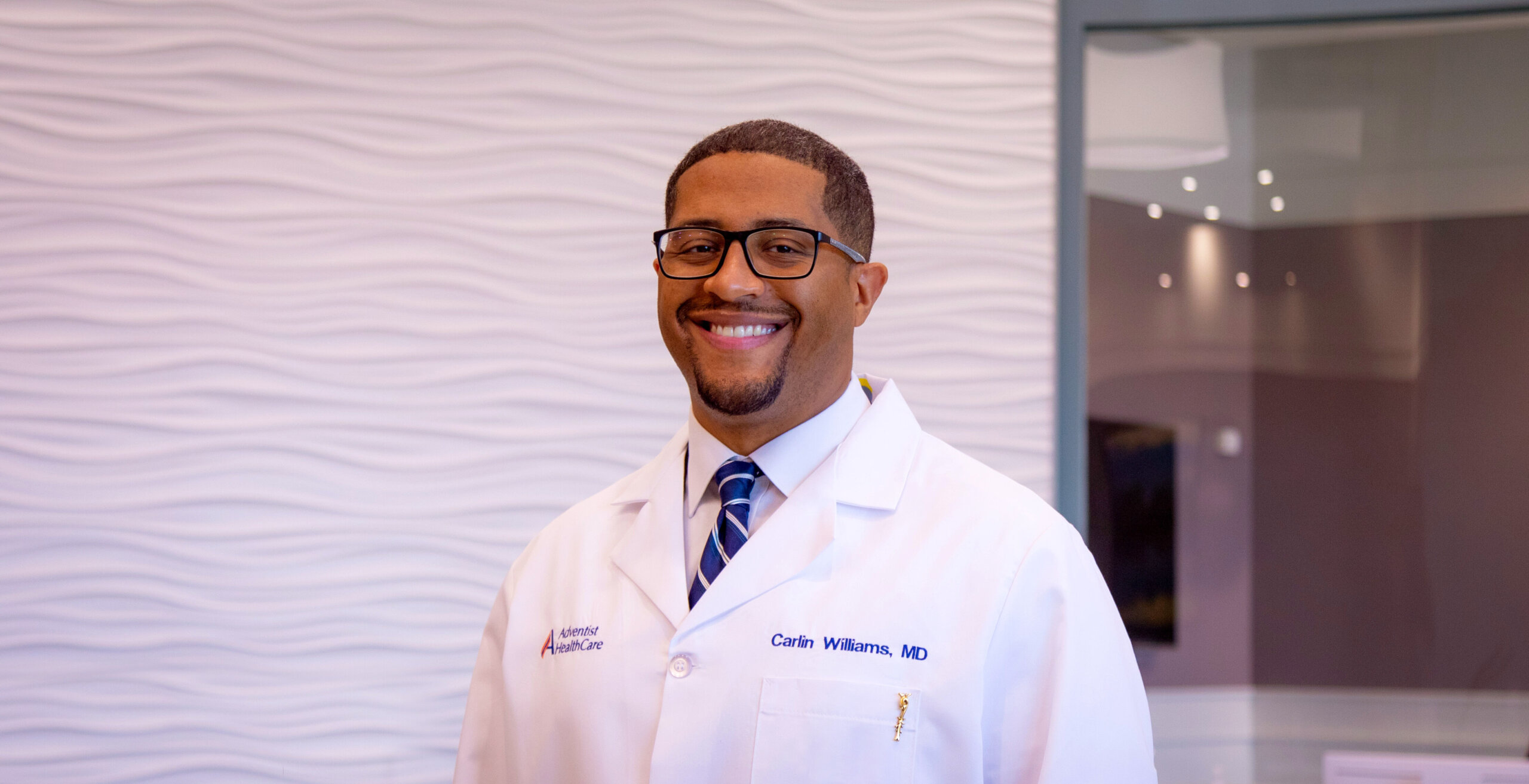This content is sponsored by Adventist HealthCare Fort Washington Medical Center.
November is National Diabetes Month. It’s a top priority for specialists at Adventist HealthCare Fort Washington Medical Center as they continue working to bring more resources and treatment options to southwestern Prince George’s County.
“Diabetes can slow down, alter or completely block blood flow in vessels that supply different parts of the body,” explained Dr. Carlin Williams, the hospital’s director of vascular surgery.

It affects about 37 million Americans and occurs when blood glucose, also called blood sugar, is too high.
Diabetes can damage the eyes, kidneys, nerves and heart, and it’s linked to certain types of cancer.
“Stroke risk can be elevated when arteries supplying the brain are diseased,” Williams said. “Heart attacks are more common with blockages in vessels supplying the heart.”
When Adventist HealthCare recently opened a new vascular laboratory, it was a significant step in bringing more accessible care to the Fort Washington area.
Noninvasive vascular testing is performed at the facility, which can often be done in conjunction with a clinic appointment.
“If surgery is necessary and patients are deemed to have met the necessary safety criteria for the office setting, procedures to fix blockages can be performed at another appointment,” Williams said.
The procedures are done under sedation and only require an incision a few millimeters in length.
“Patients can come and go the same day, offering ease and accessibility of vascular care,” said Williams. “It is a place where we can safely treat blood vessels in a minimally invasive fashion.”
What should patients expect?
As a vascular surgeon, Williams sees a larger portion of diabetic patients compared to a general practitioner.
Many patients are initially referred to Williams and his team for diagnostic testing and screening of the blood supply to the parts of the body that are traditionally most affected by diabetes.
Such testing is directed at diagnosing disease that worsens mortality and decreases overall quality of life.
“Much of our practice not only involves diagnosing the problems in arteries, but also continuing surveillance testing or following patients over time,” said Williams. “This makes it easier to know when a patient requires a procedure or an operation.”
 An important part of the work Williams does with Adventist HealthCare involves community outreach, which provides an opportunity for members of the general public to learn more about diabetes and how it can be diagnosed and treated.
An important part of the work Williams does with Adventist HealthCare involves community outreach, which provides an opportunity for members of the general public to learn more about diabetes and how it can be diagnosed and treated.
One event, a free community Diabetes Awareness Event happening on Nov. 4 in Fort Washington, will demonstrate how doctors perform ultrasounds of blood vessels that supply blood flow to various parts of the body, including the brain and the feet.
“This will showcase the types of testing our lab performs and give the patient a sense of what to expect when these tests are done,” Williams explained.
Williams described it as being “a fun and educational experience for patients and referring providers.”
Expanding care in the community
The vascular system is comprised of vessels that carry blood all throughout the body, and having a doctor that specializes in that complex field is a critical component in expanding health care options locally in southwestern Prince George’s County.
It’s all in the name of reducing disparities and helping people find care close to home so they don’t need to travel to places such as other Maryland counties, Virginia or D.C. in search of medical options.
Reducing travel-related stress is particularly beneficial for elderly individuals, children and those with limited mobility.
“My vision for this service line is to provide the quality vascular surgical care that our community needs,” said Williams. “These diagnostic and procedural areas are absolutely necessary to service the needs of our vibrant, growing community.”
Overall, the presence of a nearby hospital is a cornerstone of public health infrastructure, ensuring that everyone has the opportunity for prompt and effective healthcare when they need it most.
Having access to Adventist HealthCare Fort Washington Medical Center fosters a sense of security within the community because residents know that immediate medical assistance is readily available.
Routine check-ups, vaccinations, and screenings are essential for early detection of illnesses and maintenance of overall well-being. When healthcare services are conveniently located, residents are more likely to seek out and adhere to those important measures.
“Patients and primary care providers deserve quality specialty care that can be easily accessed in their own neighborhood,” Williams said. “We hope that our community feels safe and well-served by our quality providers and staff.”





